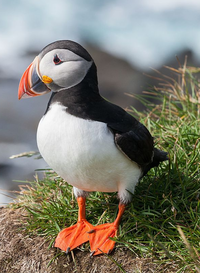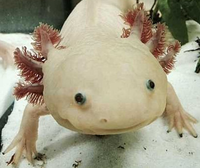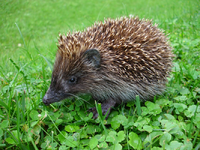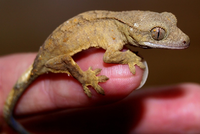Difference between revisions of "Classification Key"
(Created page with "==Key Stage 2== ===Meaning=== A '''classification key''' is a set of questions about the features of a living thing that can be used to identify it. ===About Cla...") |
|||
| Line 13: | Line 13: | ||
|[[File:Gecco.png|center|200px]] | |[[File:Gecco.png|center|200px]] | ||
|- | |- | ||
| − | |A puffin lays hard eggs and has feathers. | + | | style="height:20px; width:200px; text-align:center;" | A puffin lays hard eggs and has feathers. |
| − | |An axolotl has gills and lungs and no scales. | + | | style="height:20px; width:200px; text-align:center;" | An axolotl has gills and lungs and no scales. |
| − | |A hedgehog does not lay eggs and has fur. | + | | style="height:20px; width:200px; text-align:center;" | A hedgehog does not lay eggs and has fur. |
| − | |A gecco lays soft shelled eggs and has dry scales. | + | | style="height:20px; width:200px; text-align:center;" | A gecco lays soft shelled eggs and has dry scales. |
|} | |} | ||
Revision as of 08:33, 10 August 2018
Key Stage 2
Meaning
A classification key is a set of questions about the features of a living thing that can be used to identify it.
About Classification Keys
Classification keys are used by scientists to find out the name of the creature they're looking at. If the key they have can't be used to identify the creature it might be a new creature that no-one has seen before.
Examples
| A puffin lays hard eggs and has feathers. | An axolotl has gills and lungs and no scales. | A hedgehog does not lay eggs and has fur. | A gecco lays soft shelled eggs and has dry scales. |





